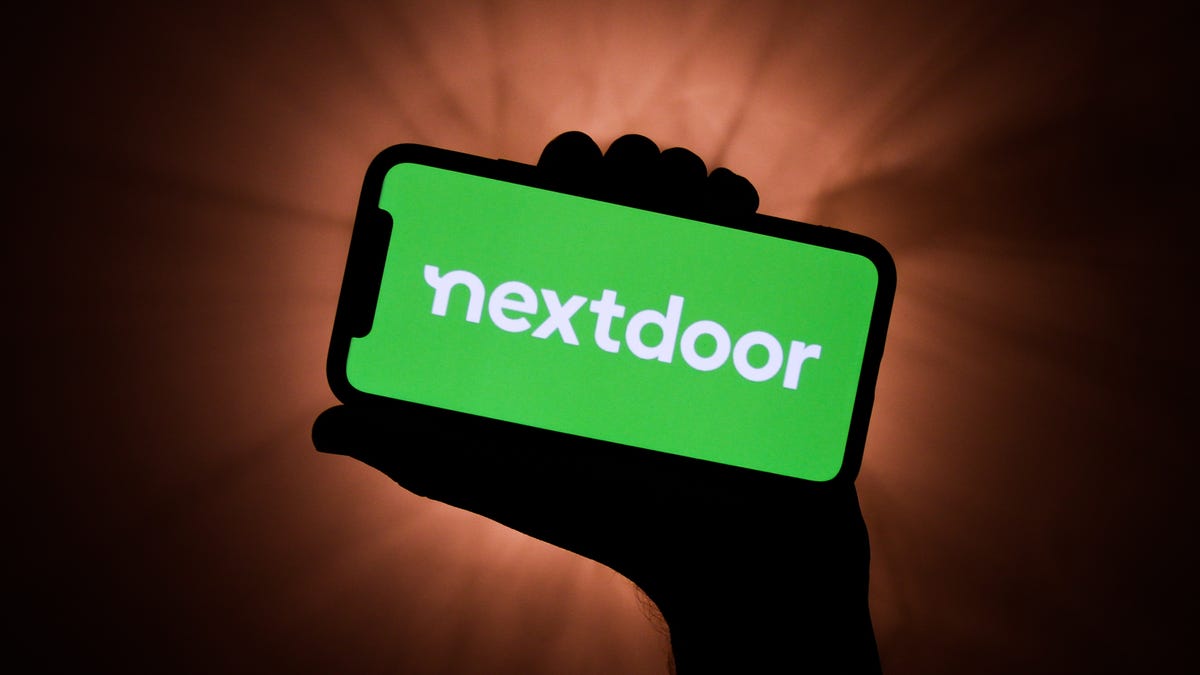Nextdoor Wants You to Connect With Neighbors You May Know
The social network for neighborhoods unveils new features and a new product strategy.

Nextdoor says 1 in 3 households use the app in the US.
Nextdoor, a social media platform for neighborhoods, hasn't changed much over the past few years but that could start to shift.
On Tuesday, the company unveiled new features, including the ability for users to send requests to connect with neighbors so that posts, comments and reactions from their connections are highlighted in the app's news feed. Nextdoor users will also be able to mention their neighbors they connect with in their comments and posts. The app will recommend neighbors you may know.
Nextdoor will recommend neighbors you may know so users can request to connect with them.
Nextdoor users can greet new neighbors with reactions and virtual gifts such as cookies and flower emojis. A redesigned profile will encourage users to add a short bio, chosen pronouns and a photo of themselves.
The company is also redesigning the platform's layout so it's easier to search the app and repetitive and outdated links are removed. The revamped layout and a more relevant feed are currently being tested and will roll out globally in the coming months.
Nextdoor's Head of Product Kiran Prasad said in an interview the updates are part of the company's new product strategy to help neighbors and organizations build a community where they exchange valuable information, goods and services. The creation of what Nextdoor calls an "active valued community" underscores how the social network views itself differently from apps such as Facebook , Twitter and short-form video app TikTok. Apps like Facebook, Prasad said, are platforms where people come to be entertained while Nextdoor is a place where users get tasks accomplished such as finding a local electrician or a lost pet.
Still, the release of Nextdoor's latest updates also show that the social network has been slower to experiment with more dramatic changes compared to its competitors. Facebook, which renamed itself Meta, has been focusing on short-form video and building virtual worlds where people can work, play and socialize. Facebook first rolled out a tool that showed people you might know in 2008, recommendations that some users find creepy. In May, Facebook started to test a new tool called Neighborhoods aimed at helping people get to know their neighbors and local communities, taking on Nextdoor. Social media apps such as Twitter have been releasing ways to share live audio and even showcase digital assets known as nonfungible tokens.
Prasad said that when the company is creating new products, Nextdoor looks at whether a tool aligns with the platform's purpose "to cultivate a kinder world where everyone has a neighborhood they can rely on." If a new feature does that, the company is open to exploring the idea. Nextdoor users, for example, like to chat about cooking so a video product could help people share a recipe but neighbors might also want to come together to do that activity in person, he said.
On Nextdoor, users post about a variety of topics including free items, stolen packages and coyote sightings. People have used Nextdoor during the coronavirus pandemic and natural disasters to offer their neighbors help. Like other social networks, though, the company has also dealt with racist posts, shaming and coronavirus misinformation on its platform. Prasad said that while Nextdoor wants people to talk about what's happening in the world, the social network also wants conversation to stay civil. In April, the company rolled out an anti-racism notification that encourages users to edit comments or posts that include certain phrases such as "All Lives Matter" or "Blue Lives Matter." Nextdoor also reminds users to be kind if they're about to post a potentially offensive or hurtful remark.
Founded in 2008, Nextdoor is used in 285,000 neighborhoods and 11 countries. About 33 million people log onto the platform every week.

